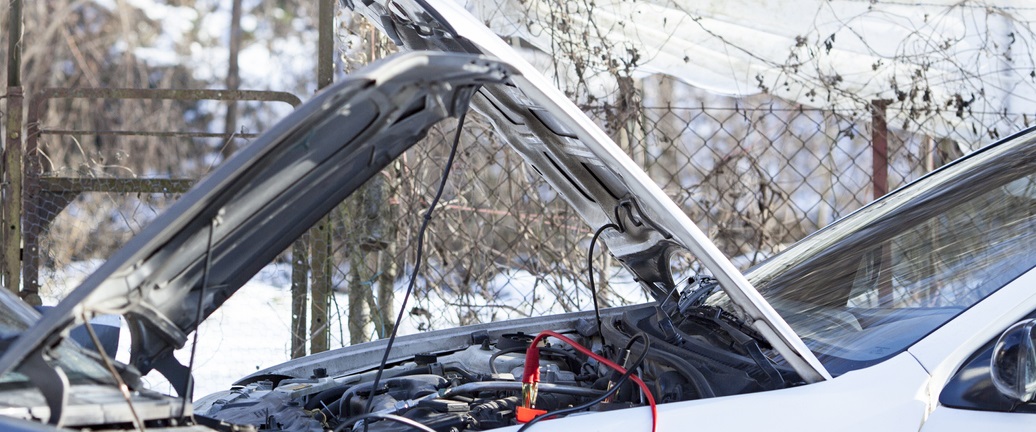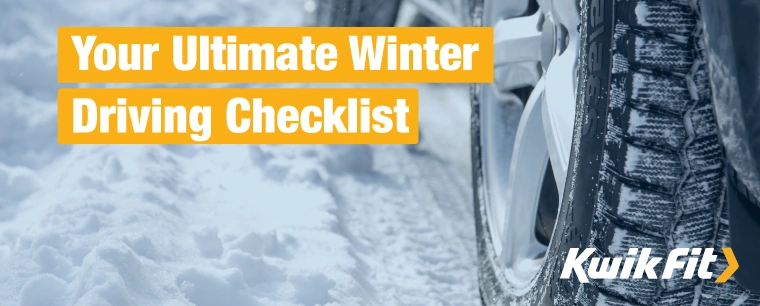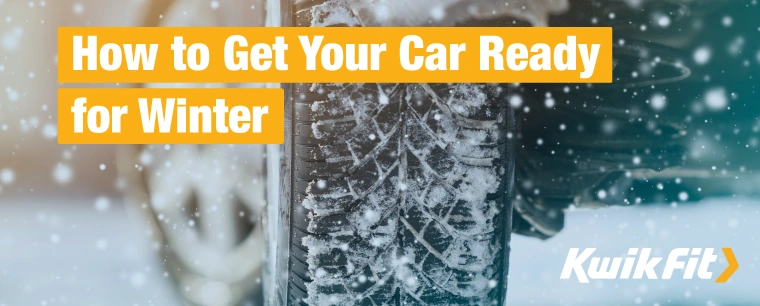Why car batteries die in cold weather
Kwik Fit | Friday 15th February 2019 9:10am

If youíve experienced that sinking feeling of turning your key in the ignition only for nothing to happen, you wonít be surprised to learn that flat batteries are one of the main reasons for car breakdown calls in the UK - and this problem is particularly common when cold weather strikes. But have you ever wondered why your car sometimes seems more reluctant to start on cold days?
In this blog, we look at why falling temperatures impact on your vehicleís battery - and the steps you can take to ensure youíre not caught out this chilly season.
The effect of cold weather
The majority of car batteries hold their charge using a liquid electrolyte solution - and this solution is affected by temperature. Although it takes extremely low temperatures to cause the battery to freeze, cold conditions can reduce the electrolyte solutionís ability to transfer full power. This is why youíre more likely to have trouble starting your car when temperatures tumble.
The way you use your car during cold weather can also impact on the battery. For example, because of the bad weather and shorter days, people tend to use their lights more at this time of year, as well as other systems that drain power such as heaters and windscreen wipers and washers. All of this puts added strain on your vehicleís battery.
Cars also tend to be used less during spells of icy weather and over the Christmas holiday period when many people are off work. Because batteries gradually lose their charge when theyíre not being used, this can make them more prone to fail.
Signs that you have a flat battery
So, how do you know if your car has a flat battery? If you donít hear anything when you turn the ignition key, or you notice a faint whining noise but the starter motor doesnít kick in, the chances are you have a flat battery. There are other warning signs too. For example, the ignition lights on your dashboard may not come on, or you might not be able to unlock your vehicle via remote central locking.
Itís important to be aware that there are other problems that cause similar effects, such as a faulty alternator or starter motor. If you have a relatively new battery and it keeps going flat, the alternator is probably to blame. Flickering dashboard lights also point to this issue. Meanwhile, a sign that your starter motor has gone is a clicking sound when you turn the key in the ignition.
If youíre not sure whatís causing the problem, youíll need to arrange to have your car checked over by a technician.
How to fix a flat
Flat batteries always seem to happen at the worst possible times. If youíre in a rush to get somewhere and you discover that your carís not cooperating, you may be able to jump start it. However, to do this youíll need access to another vehicle and some jump cables.
For a more long-term solution if your battery is old or damaged, you may benefit from investing in a new one. We offer a full car battery replacement service. You can purchase a battery online and book an appointment to have it fitted at your local Kwik Fit centre.
Steps to protect your battery during cold weather
Fortunately, there are steps you can take to protect your car battery when cold weather strikes. For example, if you have access to a garage, make sure you park your vehicle in it to shield it from the weather.
If you use your car to make short trips on a regular basis, itís generally a good idea to charge your battery at least once a week during cold snaps. This is especially important if the battery is over three years old.
To conserve battery power, make sure you switch all power loads off before you turn your engine off at the end of a journey. This includes your lights, wiper blades, radio and heater. Also, before journeys, ensure that all these things are switched off before you turn your ignition on. In general, try to avoid using heaters, heated screens and heated seats when you donít need to. Bear in mind that some in-car sat navs and MP3 and DVD players can drain your battery if you fail to disconnect them, so this is another thing to pay attention to. Itís also important to make sure that you donít leave any interior lights on in your car. This includes in the boot.
In case the worst should happen and you do get a flat, you may want to consider investing in a car battery booster. This is a rechargeable device that you can clip onto your battery to get it working again. This handy piece of kit doesnít require you to use jump leads and it works more quickly than a conventional car battery charger.
Make sure you get your battery checked on a regular basis too, especially if itís over three years old. As they age, batteries tend to become weaker and they can be particularly badly affected by the cold. If you notice that your battery isnít holding its charge effectively, itís probably time to get a new one.
By understanding why your battery is more likely to fail in the cold and taking steps to prevent this, you should be able to avoid getting an inconvenient flat. If youíre concerned about the charging capability of your vehicleís battery, donít leave it until your car wonít start. Call into your nearest Kwik Fit centre instead and our experts will carry out a free check.
Any facts, figures and prices shown in our blog articles are correct at time of publication.
Featured Articles
Is Your Car Battery Ready for Winter?
Monday 11th November 2024
Is the UK on the verge of Ďthe coldest winter for 50 years?í Even if El NiŮo doesn't hit the UK this winter, reduce the risk of a winter breakdown by making sure your car battery is winter-ready.
Your Ultimate Winter Driving Checklist
Monday 31st October 2022
Driving in the colder months presents many challenges. Breakdowns are far more common in winter, so make sure youíre prepared with these essentials.
How to Get Your Car Ready for Winter
Wednesday 28th September 2022
Winter can be a harsh season for your car but planning ahead by carrying out some basic maintenance and packing some essential kit should help you avoid a winter breakdown.







